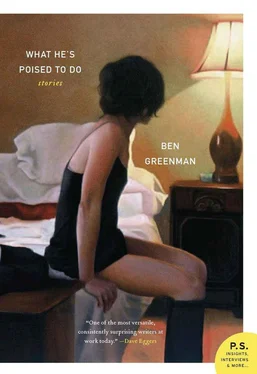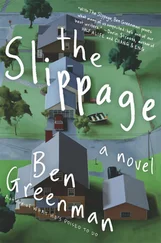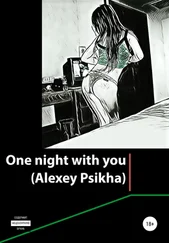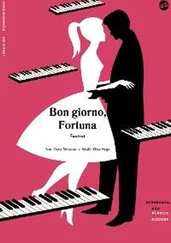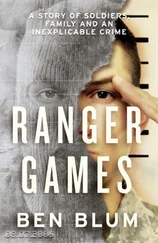I should have stopped after two letters, or three, or five, or ten.
16.
When Jill decided to marry Jack Holland, there was no thinking long and hard. She just did it, stepped into a bone-white cocktail dress and drove herself to a justice of the peace on the other side of town. Jack came straight from the pizza shop to meet her there. I didn’t think he was right for her, and it had nothing to do with the fact that she was only eighteen. He was too powerful, too big, with reserves of rough strength it seemed unlikely that she would be able to control. She was a delicate person, no matter how much she liked to pretend otherwise.
I didn’t tell her that. Instead, I congratulated her and asked her if there would be a party to celebrate. “Mom said she’ll throw one, but she’s slipping further every day,” Jill said. “I think I’ll have one for myself. But you have to promise to come and to bring your girlfriend.”
“Where will it be?”
“At the house, of course,” she said. Her voice had an offended note in it.
My girlfriend had never been to the moon, and I over-prepared her with stories about everything I could remember. Our flight was delayed, and we arrived midway through the party. As I came across the frontage, I saw that there were balloons tied to the fence. It looked like they were holding it up. I opened the gate gingerly and motioned my girlfriend through. Jill was the first person I saw, and her new husband was the second. I hugged her and shook his hand and told them both that, for the first time in my life, I felt certain that I didn’t have to worry about my sister. Behind them was a long wide table loaded with pizza. “Very nostalgic,” I said to Jill.
“What do you mean?” Jack said thuddingly. “I brought the food.”
“You did,” Jill said, and pulled him close to her. He refused to bend, and he towered over her, but he looked down with an expression that had no condescension, no cruelty, and no pity. It was an expression of total and unconditional devotion, and it came through loud and clear.
17.
Jill and I stood in a corner of the yard while Jack took my girlfriend on a tour of the house. We made the smallest small talk: when I thought I might graduate, where she and Jack would live. Two little boys and a dog were playing tag outside of the fence. One boy lunged for the other, who evaded the tag. He bumped into the fencepost closest to us, which pulled up slightly.
“Someone should fix that,” Jill said.
“I’ll get right on it,” I said.
“You should see Mom,” Jill said.
“Of course,” I said. “Do you think I forgot?” But the truth was that I had.
My mother was sitting up against the house, in an armchair someone had brought out to the lawn. She was a small brown husk, hardly recognizable. But she brightened immediately when she saw me. “Is this your girlfriend?” she said, pointing at Jill. She grasped Jill’s hand. “You’re an angel,” she said. “I hope Goosey isn’t bothering you. He’s a horrible little thing.”
Jill scowled, then remembered who she was supposed to be. She smiled and excused herself. “I’m going to go powder my nose,” she said.
My mother took me by the elbow and pulled me down close to her mouth.
“You know who I’ve been hearing from?” she said.
“No,” I said.
“Your father,” she said. “I didn’t tell you before because I didn’t want to upset you. I know that he stopped writing to you a while ago.” She paused, gripped the arms of her chair as if she might stand, thought better of it, relaxed. “Letters from your father,” she said. “Will you get a load of that?”
“I am so sorry,” I said. The grief in my voice was real.

SHE HATES THE WAY HE WEIGHS HIMSELF EACH DAY. SHE HAS turned this into a kind of jingle. “She hates the way / He weighs himself / Each day.” It has the same melody as a commercial on television for a local car-repair shop. The repair shop’s song is “When something breaks / Just take your car / To Lake’s.” Sophie is thinking about the repair shop jingle while she drives along. Something has been rattling in the corners of the dashboard. Joe rarely rides in her car, and he won’t let her drive his truck, so the noise is her problem. “I’ll take a look at it,” he had said the night before, without a shred of conviction. Then he went into the bathroom to weigh himself.
He thinks that she doesn’t notice that he’s vain about his weight. She does notice, because when she was younger, she had a close friend named Peter who always used to complain about men who weighed themselves. “A man should only know what he weighs within five pounds,” Peter said. “And if he lies about his weight, he should lie on the high side. Being a man is about being a mass, at least in part.” Peter communicated his theories to her in rambling monologues that he wrote up longhand and sent as if they were love letters, which she supposed they were. He was uncertain about some of his theories, like the one about the faked moon landing or the one about feline telepathy. But he was sure about men and weight. “Look at me,” Peter said. “I’m two-twenty. You don’t hear me crying about my weight.” Peter was one-ninety, tops. She took his point.
Joe was two-twenty, most days. That morning he had come out of the bathroom with a smile on his face. “Down a pound,” he had said. Sophie was still in bed. She smiled back at his smile without thinking about why she was doing it. Since Joe had started weighing himself incessantly, Sophie had stopped weighing herself. There was some advantage to his compulsion and his weakness. Maybe that’s why she was smiling back at him.
Back when she was friends with Peter, he had wanted to date her, which was not something he had ever expressed in his letters. The implication was there, but he worked the edges and the margins, waited until they were together, at a movie, and just as it started, he touched her arm. “I want to be with you, you know,” he said. Peter was a very aggressive man, but when he told her that he wanted to date, he did not sound very aggressive. He sounded like he was holding an eggshell in his hand. During the movie, his hand dangled over the armrest and brushed against her thigh with a heartbreaking timidity. Sophie waited until the movie was over, and then she said no to Peter. She told him that he was just a friend, that she could not imagine them in a more romantic relationship. That was a lie. She imagined it often, and most of the times her imagination carried her through to a time when Peter would recognize that he did not care about her as much as he thought he did. Under the influence of that new epiphany, he would slowly drift away, or run off with another woman, and Sophie would be left behind to feel hollow or, more precisely, filled with nothing. That was her thinking as she told him no. He looked at her without blinking, then blinked, and that blink returned everything to normal, such as it was. The next day he sent her a letter in which he told her that plastic was a living organism hell-bent on populating the planet to the point where it crowded out all other species. “Frogs, toads, all,” he wrote, in large looping letters.
Joe has said that if Sophie ever left him, he would feel bereft. Joe does not know what the word means. Joe has also apologized for being aggressive. He does not know what that word means either. In fact, one of the reasons he was selected over someone like Peter was that he was not very aggressive. He was selected? She is removing herself from the equation even when she is the subject of the sentence. She hits herself with a nun’s ruler, mentally.
Читать дальше
